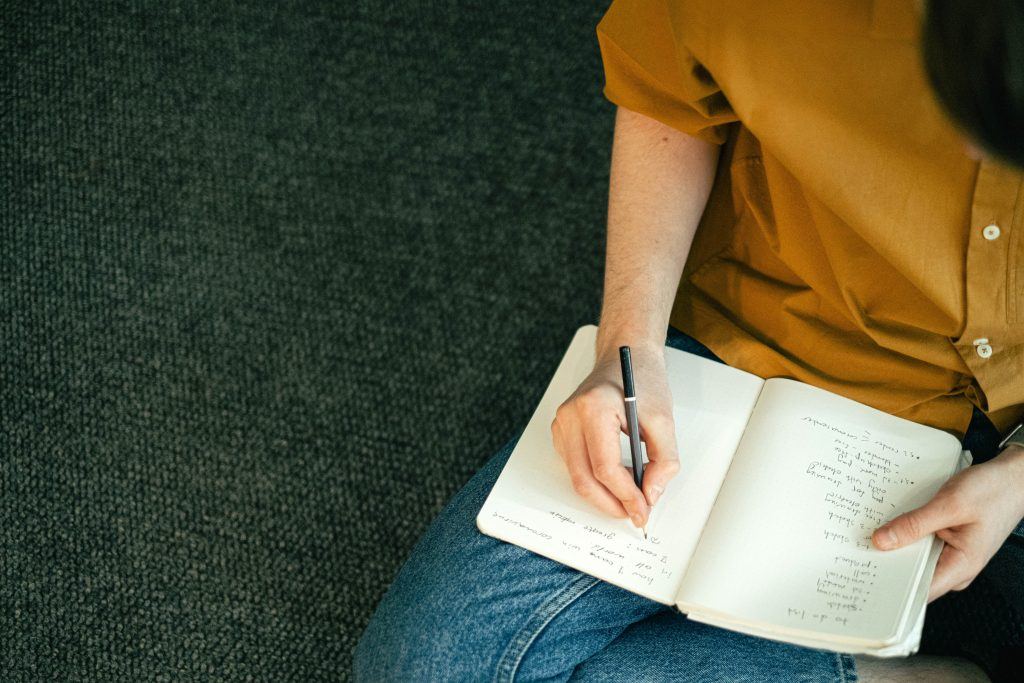Brain fog is something I have struggled with due to anxiety and sleep deprivation and this helpful post from Erica Hughes over at Nine to Three Thirty is full of ideas for how to help with that.
Brain fog for me is when I can’t remember things to the point when it gets in the way of everyday life. We all have the odd moment of forgetting why we went into a room, but true brain fog is when this is happening constantly. Sometimes it’s so bad that I forget what I am supposed to be doing when moving from email to a browser say on my computer. Lots of things cause brain fog: anxiety, stress, menopause, the list is long. The trouble is we all have lives that we need to hold together and we still need to function at a basic level at least.

I’ve developed some strategies for coping with brain fog. These work for me, so they might well work for you too, or maybe you could adapt them so that they do.
Meditation – I’m not a natural meditator and I only really resort to it when my brain fog is really bad. I find it quite effective, but I’ve struggled to make it part of my daily life on an ongoing basis. I use the free version of the app Headspace to help me. This strategy was suggested to me by a therapist friend who has found it has worked for her clients over a number of years. It only needs to be five or ten minutes a day and I’ve found the effects are noticeable within a couple of days.

Writing Lists –I often say if it doesn’t get written down, it doesn’t get done. If it’s on the to-do list, I stand a chance of getting to it. The other option is to do it when you think of it, but that’s not always something that you can do or the best use of time. If the to-do list is overwhelming, I try to have a single day list with just a couple of essential jobs on it, get those done and you can feel satisfied if you can do any of the other items on the list you’re having a good day.

Prompts – I use prompts all the time to help me remember. They are usually physical things: an empty cup in my hand reminds me to put the kettle on when I get downstairs; leaving the washing basket on the landing makes me think to put a load on; and things that need to go upstairs get left on the lower step, so they go up on the next convenient journey.
Three Things – If I don’t want to write a list, I try to keep things I have to remember to three items. So if I am going downstairs and want to do some small tasks whilst I’m there, I try to limit them to three (I don’t seem to retain more than that number easily). Sometimes I’ll have a physical prompt for one or two: an empty cup that needs a fresh cup of tea in it or maybe I’ll need to go to the loo and my body provides a reminder for that. When I get downstairs, I can mentally tick off the items in my head. I know I have three things to do, so if I haven’t done those three things I can dredge the mind and I can usually call to mind whatever task I’ve temporarily forgotten.
Talk to Yourself – Ignore that first sign of madness idea and repeat to yourself what you need to do like a mantra. I do this when the brain fog is thick and I need to remember something for a few seconds. For example, I need to remember I need to search for a certain thing on the internet for the time between leaving the email that prompted the need to search and reaching my internet browser and typing in my search (I know that’s only a few seconds, but when the fog is bad, it’s like that). Whilst I am doing that I keep saying to myself what I need to do, otherwise, once I get to the internet browser I’ll get distracted by an already open window and forget what I was there to do.
Supplements – I’ve also been exploring additional ways to support my brain health, such as considering supplements like CogniUltra or Neurodrine, which are known to potentially enhance cognitive function and improve focus over time.”

This is what works for me, but you can easily adapt it to suit you. So if three things is too much to remember try two and so on. I’m always interested in hearing what others do to cope with similar problems, so I’d be interested in learning what you do to keep your life running when the brain fog descends.
You can also find Erica on Facebook, Twitter and Instagram sharing all sorts of useful and helpful things about family life and parenting school age children.